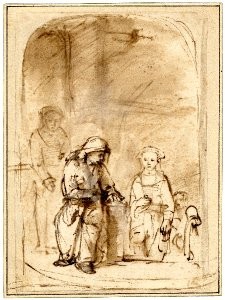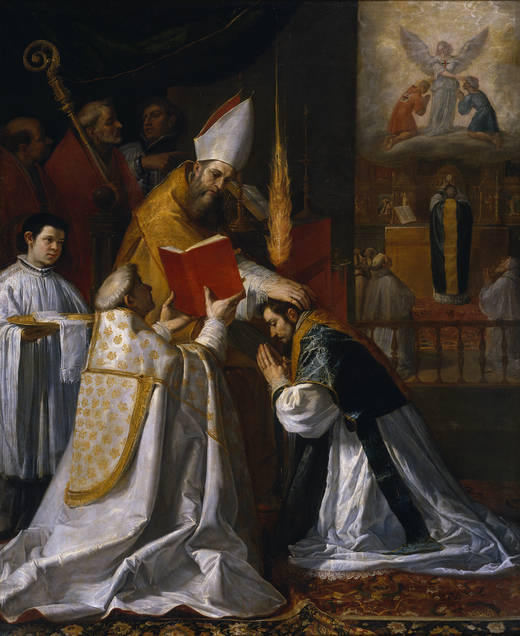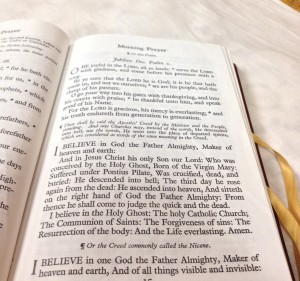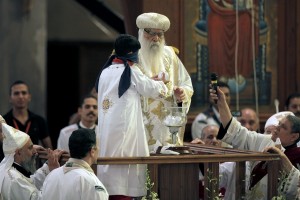====================
A sermon offered on Twenty-Fourth Sunday after Pentecost (Proper 27B, Track 1, RCL), November 8, 2015, to the people of St. Paul’s Episcopal Church, Medina, Ohio, where Fr. Funston is rector.
(The lessons for the day are Ruth 3:1-5;4:13-17; Psalm 127; Hebrews 9:24-28; and Mark 12:38-44 . These lessons may be found at The Lectionary Page. The collect for the day, referenced in the sermon, is found at the same site.)
====================
 I get letters. Sometimes they’re really nice letters. And sometimes they’re not. Today, I want to tell you about a letter and how it caused me to rethink the two stories of women in today’s lectionary readings: First, the end of the story of Ruth from the biblical book named for her, and second, the story of Jesus watching and commenting upon the sacrificial giving of a widow in the Jerusalem temple.
I get letters. Sometimes they’re really nice letters. And sometimes they’re not. Today, I want to tell you about a letter and how it caused me to rethink the two stories of women in today’s lectionary readings: First, the end of the story of Ruth from the biblical book named for her, and second, the story of Jesus watching and commenting upon the sacrificial giving of a widow in the Jerusalem temple.
The Book of Ruth is a very simple story. As Dr. Alphonetta Wines, a Methodist theologian, has said:
The genius of the book of Ruth begins with its literary simplicity. In chapter one, Naomi’s troubles are relentless as one by one, famine, displacement, and bereavement steal her joy, turning her into a bitter woman. In chapter two Ruth ekes out a living for Naomi and herself. Both are abundantly blessed in the process. In chapter three, Ruth, at Naomi’s bidding, encounters Boaz on the threshing floor. In chapter four, the birth of Ruth’s child Obed brings Naomi joy that she thought would never be hers again. What began in misfortune has turned out to be a blessing for generations to come. (Working Preacher Commentary)
It’s simplicity, however, obscures for us its very radical messages: one of hope for women in a patriarchal society where the rules are all stacked against them, and another for inclusion of the stranger and the alien for it tells us this foreign woman, Ruth the Moabite, was the great grandmother of Israel’s King David and, thus, an ancestor of his descendent whom we believe to be the Son of God.
The story of the widow in the temple is another study in simplicity. Jesus is in the temple teaching, very clearly teaching against the scribes whom he criticizes for their opulent and self-serving ways. Having just criticized the scribes for “devouring widows’ houses,” he watches this particular widow turn over to those same scribes everything she possesses. Jesus seems to praise her for giving “out of her poverty . . . everything she had,” while criticizing wealthier donors who merely “contribute out of their abundance.”
This story has been used countless times a “stewardship sermon” text to encourage sacrificial giving by modern Christians. However, while I certainly want to encourage your generosity to the church, I think that’s a misuse of the text. Elsewhere, Jesus has encouraged such giving (as when he tells the wealthy young man to “sell all you have and give the money to the poor”) but I don’t believe that that is his intent here. Rather, in this story he is (I believe) teaching a lesson about two approaches to religion, a lesson also taught by the whole story of Ruth.
I came to this conclusion on Friday. Two things happened on Friday. The first was my practice of reading every morning from Daily Office lectionary; the second was the letter I just mentioned, which was delivered to the church office by our mailman on Friday afternoon.
The Daily Office Old Testament readings for the past couple of weeks have been from the books of Ezra and Nehemiah telling the story of the return of Jerusalem’s exiles from Babylonia and their rebuilding of the Temple; the Gospel readings have been from Matthew’s Gospel. On Friday, the latter was the story of the feeding of the 5,000 with two fish and five loaves of bread, while the lesson from Ezra told of the sacrifice made in thanksgiving for the completion and dedication of the restored temple:
At that time those who had come from captivity, the returned exiles, offered burnt-offerings to the God of Israel, twelve bulls for all Israel, ninety-six rams, seventy-seven lambs, and as a sin-offering twelve male goats; all this was a burnt-offering to the Lord. (Ezra 8:35)
In my Daily Office meditation on Friday, I wrote that the contrast between the grossly exorbitant – one is tempted to say “wasteful” – sacrifice in the story from Ezra and the frugal but plentiful picnic in Matthew is a striking illustration of two very different understandings of religion: on the one hand, religion as rules; on the other, religion as caring.
In our contemporary society and for the past several years, it’s been fashionable amongst some people to make a distinction between being “spiritual” and being “religious.” Those who study modern religion, such as the Pew Institute, even have a classification, “SBNR,” as one of their demographic categories, the “spiritual but not religious.” That distinction, I think, is what is addressed by our bible stories today; I don’t think Ruth or Naomi or Jesus or the widow in the temple would ever make that distinction, however. They would never divorce spirituality from religion. They might, however, make a distinction between these two kinds of religious practice: religion as rules versus religion as caring.
You know that I love looking into word origins, what is technically called “etymology”. Usually when I do this in a sermon I ask you to consider the original Greek of the New Testament, or the Hebrew of the Old Testament, but today I want to look at the English word religion, its root and derivation, and what we mean by it. If we look in the dictionary we will find that it is defined as “an organized system of beliefs, ceremonies, and rules used to worship a god or a group of gods.” (Merriam-Webster) Wikipedia, the online encyclopedia, offers this definition: “A religion is an organized collection of beliefs, cultural systems, and world views that relate humanity to an order of existence.”
The British Broadcasting Corporation, as part of their web presence, has a really good subsection for reporting religious news from all over the world. On the homepage of that religious news section, the BBC includes this statement:
Religion can be explained as a set of beliefs concerning the cause, nature, and purpose of the universe, especially when considered as the creation of a superhuman agency or agencies, usually involving devotional and ritual observances, and often containing a moral code governing the conduct of human affairs. (BBC.co.uk)
Notice what is common to all these definitions: beliefs about gods (or at least the supernatural), regulations of conduct, and ritual ceremonies. In other words, they are all about religion as rules. Only at the end, and only as a optional element, does the BBC definition include anything about morality or social behavior or anything that could be called “religion as caring”.
These definitions apply fully to the conduct of the scribes Jesus talks about in the Gospel lesson: they “like to walk around in long robes, and to be greeted with respect in the marketplaces, and to have the best seats in the synagogues and . . . for the sake of appearance say long prayers.” They also apply to the Israelite society into which Naomi and Ruth come from Moab, a patriarchal society dominated by religious regulations, the Law of Moses, which denied independent livelihood to women. Beliefs, regulations, rituals: religion as rules.
The first recorded use of the word religion in the English language was in the 12th Century to describe the state of life of those bound by monastic vows and only later to describe the pious conduct all persons, lay and “religious” alike, but in both uses the emphasis is on religion as rules. Our word religion derives from the Latin word religionem which Roman philosophers, such as Cicero and Lactantius, used to connote a respect for the sacred and reverence for the gods; St. Jerome used it in the Latin vulgate translation of the Bible to render a Greek word meaning “religious ceremonies” (threskeia, Acts 26:5 & James 1:26-27).
The root of the Latin word religionem, however, was a matter of some dispute amongst those same Roman writers. Some believed it came from the verb religare which means “to bind up,” which is what rules do. Others, however, argued that it derived from relegere meaning “to read again” or “to read carefully,” that it is related to the word religiens meaning “careful”, the opposite of negligens, or negligent. This second derivation suggests that religion is less about rules than it is about caring.
The beliefs-rules-and-rituals understanding of religion is the way a lot of people, like the temple scribes and like early Israelite patriarchal society, understand religion. When this is our understanding, we end up following rules that lead the grossly over-the-top sacrifice of nearly 200 head of livestock described in Friday’s Old Testament reading, we end up following rules that leave widowed women unable to provide for themselves, and we end up with religious leaders who make a show of their piety but who “devour widows’ houses.” Religion, understood as a set of binding rules proscribing behavior and prescribing rituals and ceremonies, produces such results . . . and it produces that second thing that happened on Friday, this letter delivered to the church office by our mailman that afternoon. [Note: the letter may be viewed here as a PDF file; the highlighting is in the original as delivered.]
In the November issue of our parish newsletter, we published an article about applauding during worship services which my colleague, the Rev. Peter Faass of Christ Church, Shaker Heights, had written. In it Fr. Faass commented that he invites applause when introducing married couples and, in that, made oblique reference to the fact that following this summer’s General Convention the Episcopal Church now offers marriage to same-sex couples. He recommended, however, that most of the time applause should not be offered during worship because what we do in the liturgy is not done as a performance for the congregation, but rather as an offering to God. What Peter suggested was that
instead of applause it would be best to offer a moment of silence after a pleasing offering; a moment when we may reflect on the gifts God has given to the person who is offering them up in the liturgy. In that silence let’s offer thanks. In that stillness let’s hear God’s applauding approval. [Note: Fr. Faass’s entire article can be read in PDF format in the parish newsletter here.]
Apparently we have a neighbor who reads our newsletter and who often drives by our building because that’s who this letter is from. In it, our neighbor takes us to task not only for Fr. Faass’s points, but also for our sign on which we have, from time to time, put the statement which has become a sort of unofficial motto of our diocese: “God Loves Everyone. No Exceptions.”
The letter begins, “It seems that Episcopalians are proud of being Episcopalians, but ashamed to be Christian. That explains why they find it so easy to stray from Scriptures, and hold so tightly to ‘tradition.'” The writer condemns us as “heavily influenced by popular culture” and then goes on to proof-text from Scripture why, in our correspondent’s opinion, same-sex marriage is contrary to his understanding of religion citing particularly the story of Adam and Eve. He then suggests that Fr. Faass is incorrect about God’s applause saying, “It may very well be that God is not only not applauding, but is sickened by ‘the liturgy,'” and he cites the prophets Amos and Isaiah who condemned the festivals, sacrifices, and assemblies of unfaithful Israel.
With respect to our sign, our neighbor informs us that “God Loves Everyone. No Exceptions” is simply not true, that there are, in fact, human beings whom God not only doesn’t love but whom God positively abhors. He cites one of the Psalms for this proposition.
This [the letter] is religion understood as that which binds, religion as rules; this is Scripture understood as a set of binding regulations proscribing behavior, prescribing some rituals and prohibiting others, and denying not only basic dignity but even the love of God to many of God’s children. This is the religion of the temple scribes.
To this sort of religion, Jesus contrasted the religion of the widow in the temple. No law, no rule required her make her offering of “two small copper coins, which are worth a penny.” This is not her tithe (that would have been paid at a different time and in a different way). This is not a sin offering or a burnt offering (that would have entailed the sacrifice of some animal). This is nothing more nor less than a gift of thanks, given “out of her poverty” because she cared for the God on whose blessings she depended, because she cared for the faith that was in her. Because she cared, she gave; “out of her poverty [she] put in everything she had.” This is religion as caring.
I could answer this letter. I could write to our neighbor and tell him that the Episcopal Church believes that when Jesus told Nicodemus, “God so loved the world that he gave his only son” (Jn 3:16) he didn’t put any qualifications or restrictions on that statement. I could write to our neighbor and tell him that the Episcopal Church believes with our parish patron, St. Paul, that “neither death, nor life, nor angels, nor rulers, nor things present, nor things to come, nor powers, nor height, nor depth, nor anything else in all creation, will be able to separate [any of] us from the love of God in Christ Jesus our Lord.” (Rom 8:38-39) I could do that. I could answer this letter, but I think the better response is for us as a church community to continue doing what we are called to do, to continue living a religion that emphasizes caring rather than rules.
Our correspondent admonished us that it is incumbent upon every Christian “to set the good example of following after Christ,” and he referenced the Letter of James: “Religion that is pure and undefiled before God, the Father, is this: to care for orphans and widows in their distress, and to keep oneself unstained by the world.” (Jm 1:27 NRSV) What James is saying is that religion is caring, and the Episcopal Church could not agree more strongly!
Imagine how different this world might be if the caring, rather than the binding rules aspect, were the general understanding of religion! If we understood religion to mean “caring,” rather than “an organized system of beliefs, ceremonies, and rules used to worship a god or a group of gods,” I really don’t think there would be any people who would describe themselves as “spiritual but not religious.” When the story of Ruth is understood not as a story about the rules of ancient Israelite society but, as Dr. Wines suggested, as the story of “a blessing for [all] generations to come” . . . when the story of the widow in the temple is understood not as a story about following the rules of stewardship, but as a story of giving as an act of caring . . . when the whole Bible is understood not as a book of rules and regulations, but as a collection of stories about God’s love . . . then it is clear that, contrary to our neighbor’s letter, Episcopalians do not “stray from Scripture.”
Our calling as “Episcopalians [who] are proud of being Episcopalians, [and who are positively delighted] to be Christian” is to demonstrate, to live out, and to invite others into what our new Presiding Bishop likes to call “the Jesus Movement,” a religion of caring, not a religion of rules. Like the widow in the temple, we are called to give out of our poverty all that we have and all that we are, and to invite into our self-giving not only those who are like ourselves, but also and especially those are different, the stranger, the alien, the one who is not like us, without regard to his or her social status, race, sex, sexual orientation, nationality, or anything else because nothing “in all creation, [is] able to separate [any of] us from the love of God in Christ Jesus our Lord,” because “God Loves Everyone. No Exceptions.”
Amen.
====================
A request to my readers: I’m trying to build the readership of this blog and I’d very much appreciate your help in doing so. If you find something here that is of value, please share it with others. If you are on Facebook, “like” the posts on your page so others can see them. If you are following me on Twitter, please “retweet” the notices of these meditations. If you have a blog of your own, please include mine in your links (a favor I will gladly reciprocate). Many thanks!
====================
Father Funston is the rector of St. Paul’s Episcopal Church, Medina, Ohio.
 “This is neither the time nor the place . . . .”
“This is neither the time nor the place . . . .”  “Life is a banquet, and most poor suckers are starving to death!”
“Life is a banquet, and most poor suckers are starving to death!” 
 Tonight, as my diocese begins its annual governing convention in traditional fashion with a celebration of the Holy Eucharist, we will doing so in the context of an ordination – two ordinations, in fact, one to the diaconate and one to the presbyterate. This morning’s reading from Ben Sira is lengthy description of the glories of the ceremonial priesthood. One might have expected the church to have made this one of the potential readings for a presbyteral ordination, but in its wisdom, it has not.
Tonight, as my diocese begins its annual governing convention in traditional fashion with a celebration of the Holy Eucharist, we will doing so in the context of an ordination – two ordinations, in fact, one to the diaconate and one to the presbyterate. This morning’s reading from Ben Sira is lengthy description of the glories of the ceremonial priesthood. One might have expected the church to have made this one of the potential readings for a presbyteral ordination, but in its wisdom, it has not. John uses the word “believe” three times in this short passage: once quoting Jesus about witnesses to his acts of power and twice regarding the royal official’s state of mind. What, precisely, does John mean by doing so? That is one of the ponderable but unanswerable questions about scripture, the precise meaning of a biblical author.
John uses the word “believe” three times in this short passage: once quoting Jesus about witnesses to his acts of power and twice regarding the royal official’s state of mind. What, precisely, does John mean by doing so? That is one of the ponderable but unanswerable questions about scripture, the precise meaning of a biblical author. 
 Since the early 1970s this day, on the Episcopal Church calendar, this day on which we hear the story of Jesus’ appearance to the two disciples on the road to Emmaus has been known as Star Wars Sunday. It’s because Jesus is very much like a Jedi in this story. I mean, think about it . . .
Since the early 1970s this day, on the Episcopal Church calendar, this day on which we hear the story of Jesus’ appearance to the two disciples on the road to Emmaus has been known as Star Wars Sunday. It’s because Jesus is very much like a Jedi in this story. I mean, think about it . . .  At first blush, this just feels like another unbelievable story of religious ritual and “magic hands.” It fits neatly into the pattern of war stories one finds in the Torah that are attributed to the Deuteronomist. For that writer, the Hebrews’ victory in battle always depends not on military preparation, strength of arms, or fighting skill, but on ritual exactitude — perform a religious ritual properly and you win, flub it and you lose.
At first blush, this just feels like another unbelievable story of religious ritual and “magic hands.” It fits neatly into the pattern of war stories one finds in the Torah that are attributed to the Deuteronomist. For that writer, the Hebrews’ victory in battle always depends not on military preparation, strength of arms, or fighting skill, but on ritual exactitude — perform a religious ritual properly and you win, flub it and you lose. 


